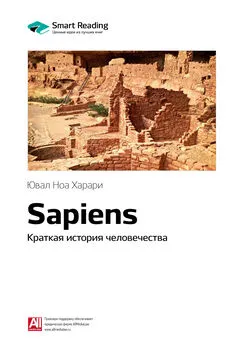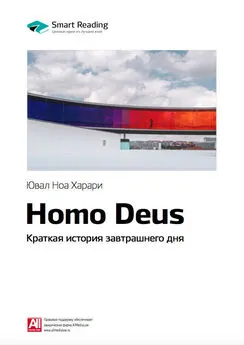Юваль Ной Харари - Homo Deus. Краткая история будущего
- Название:Homo Deus. Краткая история будущего
- Автор:
- Жанр:
- Издательство:Синдбад
- Год:2018
- Город:Москва
- ISBN:978-5-906837-92-9
- Рейтинг:
- Избранное:Добавить в избранное
-
Отзывы:
-
Ваша оценка:
Юваль Ной Харари - Homo Deus. Краткая история будущего краткое содержание
Что произойдет, когда Google и Facebook будут лучше, чем мы сами, знать наши вкусы, личные симпатии и политические предпочтения? Что будут делать миллиарды людей, вытесненных компьютерами с рынка труда и образовавших новый, бесполезный класс? Как воспримут религии генную инженерию? Каковы будут последствия перехода полномочий и компетенций от живых людей к сетевым алгоритмам? Что должен предпринять человек, чтобы защитить планету от своей же разрушительной силы?..
Главное сейчас, полагает Харари, – осознать, что мы находимся на перепутье, и понять, куда ведут пути, простирающиеся перед нами. Мы не в силах остановить ход истории, но можем выбрать направление движения.
Homo Deus. Краткая история будущего - читать онлайн бесплатно ознакомительный отрывок
Интервал:
Закладка:
80
Daniel Kahneman, Tinking, Fast and Slow (New York: Farrar, Straus & Giroux, 2011); Dan Ariely, Predictably Irrational (New York: Harper, 2009).
81
Justin Gregg, Are Dolphins Really Smart? The Mammal Behind the Myth (Oxford: Oxford University Press, 2013), 81–87; Jaak Panksepp, ‘Afective Consciousness: Core Emotional Feelings in Animals and Humans’, Consciousness and Cognition 14:1 (2005), 30–80.
82
A. S. Fleming, D. H. O’Day and G. W. Kraemer, ‘Neurobiology of Mother – Infant Interactions: Experience and Central Nervous System Plasticity Across Development and Generations’, Neuroscience and Biobehavioral Reviews 23:5 (1999), 673–685; K. D. Broad, J. P. Curley and E. B. Keverne, ‘Mother – Infant Bonding and the Evolution of Mammalian Relationship’, Philosophical Transactions of the Royal Society B 361:1476 (2006), 2199–2214; Kazutaka Mogi, Miho Nagasawa and Takefumi Kikusui, ‘Developmental Consequences and Biological Signifcance of Mother-Infant Bonding’, Progress in Neuro-Psychopharmacology and Biological Psychiatry 35:5 (2011), 1232–1241; Shota Okabe et al., ‘Te Importance of Mother– Infant Communication for Social Bond Formation in Mammals’, Animal Science Journal 83:6 (2012), 446–452.
83
Бихевиоризм (от англ. behavior – поведение) – одна из самых распространенных теорий в западной психологии первой половины XX века. Ее основатель – американский психолог Джон Бродес Уотсон (1878–1958).
84
Jean O’Malley Halley, Boundaries of Touch: Parenting and Adult– Child Intimacy (Urbana: University of Illinois Press, 2007), 50–51; Ann Taylor Allen, Feminism and Motherhood in Western Europe, 1890–1970: Te Maternal Dilemma (New York: Palgrave Macmillan, 2005), 190.
85
Lucille C. Birnbaum, ‘Behaviorism in the 1920s’, American Quarterly 7:1 (1955), 18.
86
US Department of Labor (1929), ‘Infant Care’, Washington: United States Government Printing Ofce, http://www.mchlibrary.info/history/chbu/3121–1929.PDF.
87
Harry Harlow and Robert Zimmermann, ‘Afectional Responses in the Infant Monkey’, Science 130:3373 (1959), 421–432; Harry Harlow, ‘Te Nature of Love’, American Psychologist 13 (1958), 673–685; Laurens D. Young et al., ‘Early Stress and Later Response to Sepаration in Rhesus Monkeys’, American Journal of Psychiatry 130:4 (1973), 400–405; K. D. Broad, J. P. Curley and E. B. Keverne, ‘Mother – Infant Bonding and the Evolution of Mammalian Social Relationships’, Philosophical Transactions of the Royal Soceity B 361:1476(2006), 2199–2214; Florent Pittet et al., ‘Efects of Maternal Experience on Fearfulness and Maternal Behavior in a Precocial Bird’, Animal Behavior 85:4(2013), 797–805.
88
Jacques Cauvin, Te Birth of the Gods and the Origins of Agriculture (Cambridge: Cambridge University Press, 2000); Tim Ingord, ‘From Trust to Domination: An Alternative History of Human – Animals Relations’, in Animals and Human Society: Changing Perspectives , ed. Aubrey Manning and James Serpell (New York: Routledge, 2002), 1–22; Roberta Kalechofsky, ‘Hierarchy, Kinship and Responsibility’, in A Communion of Subjects: Animals in Religion, Science and Ethics , ed. Kimberley Patton and Paul Waldau (New York: Columbia University Press, 2006), 91–102; Nerissa Russell, Social Zooarchaeology: Humans and Animals in Prehistory (Cambridge: Cambridge University Press, 2012), 207–258; Margo DeMello, Animals and Society: An Introduction to Human – Animal Studies (New York: University of Columbia Press, 2012).
89
Olivia Lang, ‘Hindu Sacrifce of 250,000 Animals Begins’, Guardian , 24 November 2009, accessed 21 December 2014,http://www.theguardian.com/world/2009/nov/24/hindu-sacrifce-gadhimai-festival-nepal.
90
Перевод с аккадского И. М. Дьяконова.
91
Benjamin R. Foster, ed., Te Epic of Gilgamesh (New York, London: W. W. Norton, 2001), 90.
92
Noah J. Cohen, Tsa’ar Ba’ale Hayim: Prevention of Cruelty to Animals: Its Bases, Development and Legislation in Hebrew Literature (Jerusalem, New York: Feldheim Publishers, 1976); Roberta Kalechofsky, Judaism and Animal Rights: Classical and Contemporary Responses (Marblehead: Micah Publications, 1992); Dan Cohen-Sherbok, ‘Hope for the Animal Kingdom: A Jewish Vision’, in A Communion of Subjects: Animals in Religion, Science and Ethics , ed. Kimberley Patton and Paul Waldau (New York: Columbia University Press, 2006), 81–90; Ze’ev Levi, ‘Ethical Issues of Animal Welfare in Jewish Tought’, in Judaism and Environmental Ethics: A Reader , ed. Martin D. Yafe (Plymouth: Lexington, 2001), 321–332; Norm Phelps, Te Dominion of Love: Animal Rights According to the Bible (New York: Lantern Books, 2002); Dovid Sears, Te Vision of Eden: Animal Welfare and Vegetarianism in Jewish Law Mysticism (Spring Valley: Orot, 2003); Nosson Slifin, Man and Beast: Our Relationships with Animals in Jewish Law and Tought (New York: Lambda, 2006).
93
Talmud Bavli, Bava Metzia, 85:71.
94
Christopher Chapple, Nonviolence to Animals, Earth and Self in Asian Tr a dit i on s (New York: State University of New York Press, 1993); Panchor Prime, Hinduism and Ecology: Seeds of Truth (London: Cassell, 1992); Christopher Key Chapple, ‘Te Living Cosmos of Jainism: A Traditional
Science Grounded in Environmental Ethics’, Daedalus 130:4 (2001), 207–224; Norm Phelps, The Great Compassion: Buddhism and Animal Rights (New York: Lantern Books, 2004); Damien Keown, Buddhist Ethics: A Very Short Introduction (Oxford: Oxford University Press, 2005), ch. 3; Kimberley Patton and Paul Waldau, ed., A Communion of Subjects: Animals in Religion, Science and Ethics (New York: Columbia University Press, 2006), esp. 179–250; Pragati Sahni, Environmental Ethics in Buddhism: A Virtues Approach (New York: Routledge, 2008); Lisa Kemmerer and Anthony J. Nocella II, ed., Call to Compassion: Refections on Animal Advocacy from the World’s Religions (New York: Lantern, 2011), esp. 15–103; Lisa Kemmerer, Animals and World Religions (Oxford: Oxford University Press, 2012), esp. 56–126; Irina Aristarkhova, ‘Tou Shall Not Harm All Living Beings: Feminism, Jainism and Animals’, Hypatia 27:3 (2012): 636–650; Eva de Clercq, ‘Karman and Compassion: Animals in the Jain Universal History’, Religions of South Asia 7 (2013): 141–157.
95
Naveh, ‘Changes in the Perception of Animals and Plants’, 11.
96
Понятие было популяризировано американским документальным телесериалом о природе уникальности человека («Человеческая искра», 2010), где ведущим выступает актер Алан Алда.
97
Выражение пошло от названия книги «Сила есть право, или Выживание наиболее приспособленных», выпущенной неизвестным автором под псевдонимом Рагнар Редбёрд в 1896 году.
98
‘Evolution, Creationism, Intelligent Design’, Gallup, accessed 20 December 2014, http://www.gallup.com/poll/21814/evolution-creationism-intelligent-design.aspx; Frank Newport, ‘In US, 46 per cent Hold Creationist View of Human Origins’, Gallup, 1 June 2012, accessed 21 December 2014, http://www.gallup.com/poll/155003/hold-creationist-view-human-origins.aspx.
99
Gregg, Are Dolphins Really Smart? , 82–83.
100
Stanislas Dehaene, Consciousness and the Brain: Deciphering How the Brain Codes Our Toughts (New York: Viking, 2014); Steven Pinker, How the Mind Works (New York: W. W. Norton, 1997).
101
Теория «глобального нейронного рабочего пространства» предложена американским ученым Бернардом Баарсом.
102
Dehaene, Consciousness and the Brain .
103
Эрудиты могут вспомнить здесь теорему Гёделя о неполноте: если формальная арифметика непротиворечива, то в ней существует невыводимая и неопровержимая формула. Популяризаторы науки иногда привлекают эту теорему в качестве доказательства существования сознания, утверждая, что, не обладай мы им, наш мозг был бы не в состоянии справляться со всевозможными невыводимыми и неопровержимыми данностями. Однако практика показывает, что для выживания и воспроизводства живым организмам вовсе не требуется разгадывать математические загадки. Большая часть принимаемых нами осознанных решений не имеет никакого отношения к вопросам опровержимо-сти и неопровержимости.
104
Christopher Steiner, Automate Tis: How Algorithms Came to Rule Our World (New York: Penguin, 2012), 215; Tom Vanderbilt, ‘Let the Robot Drive: Te Autonomous Car of the Future is Here’, Wired , 20 January 2012, accessed 21 December 2014, http://www.wired.com/2012/01/f_autonomouscars/all/; Chris Urmson, ‘Te Self-Driving Car Logs More Miles on New Wheels’, Google Ofcial Blog, 7 August 2012, accessed 23 December 2014, http://googleblog.blogspot.hu/2012/08/the-self-driving-car-logs-more-miles-on.html; Matt Richtel and Conor Dougherty, ‘Google’s Driverless Cars Run Into Problem: Cars With Drivers’, New York Times , 1 September 2015, accessed 2 September 2015, http://www.nytimes.com/2015/09/02/technology/personaltech/google-says-its-not-the-driverless-cars-fault-its-other-drivers.html?_r=1.
105
Деннет Дэниел (р. 1942) – американский философ и когнитивист.
106
Деан Станислас (р. 1965) – французский нейробиолог.
107
Dehaene, Consciousness and the Brain.
108
Там же, ch. 7.
109
‘Te Cambridge Declaration on Consciousness’, 7 July 2012, accessed 21 December 2014,https://web.archive.org/web/20131109230457/ http:// fcmconference.org/img/CambridgeDeclarationOnConsciousness.pdf.
Читать дальшеИнтервал:
Закладка:
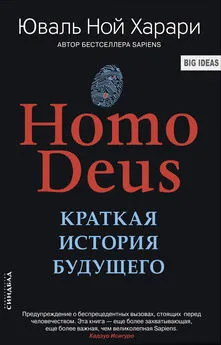
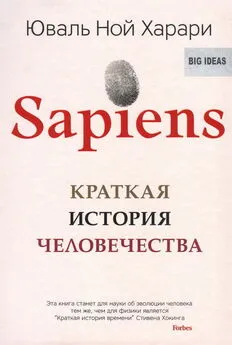
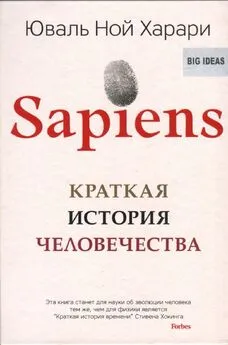
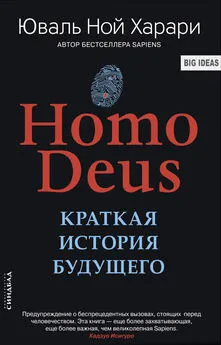
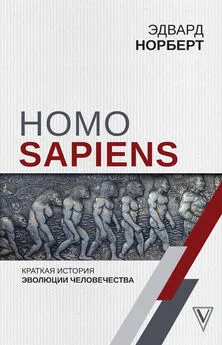
![Жак Аттали - Краткая история будущего [Мир в ближайшие 50 лет]](/books/1076384/zhak-attali-kratkaya-istoriya-buduchego-mir-v-blizhajsh.webp)
![Юваль Ной Харари - 21 урок для XXI века [Версия с комментированными отличиями перевода]](/books/1080711/yuval-noj-harari-21-urok-dlya-xxi-veka-versiya-s-ko.webp)
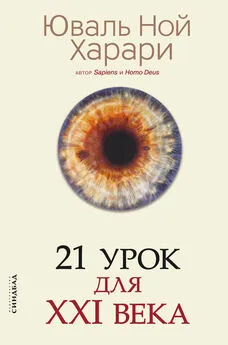
![Юваль Ной Харари - Sapiens. Краткая история человечества [litres]](/books/1102059/yuval-noj-harari-sapiens-kratkaya-istoriya-cheloveche.webp)
